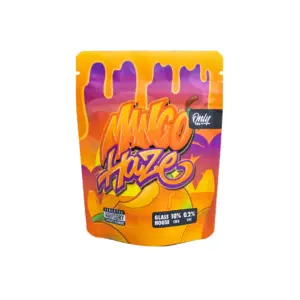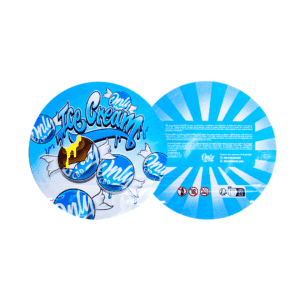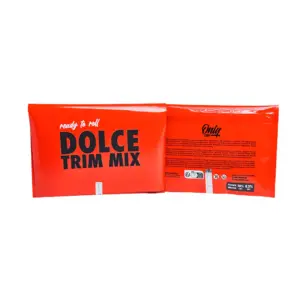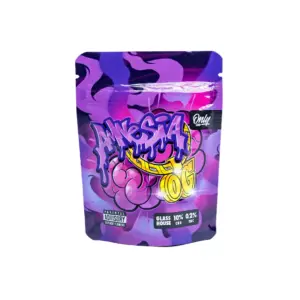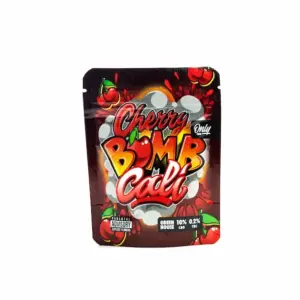WHAT IS THE DIFFERENCE BETWEEN HHC AND THC?
The cannabis plant contains more than 100 different cannabinoids. The main components are THC and CBD. However, researchers have discovered CBD in cannabis, albeit in small amounts. How do CBD and THC compare? Let's find out.
Historians traced cannabis use to various civilizations, while scientists began to understand its true potential. The recent legalization of cannabis prompted several states to promote recreational and medicinal use. The federally mandated 2018 Farm Bill legalized hemp with THC levels of 0.3 µl/L or less. As a result, massive experimentation, production, and research began. During this period, more than 100 different cannabinoids were discovered. These included tetrahydrocannabinol (THC) and cannabidiol (CBD), which constitute the major compounds. While focusing on THC, one cannot easily determine whether other forms of THC exist. Fortunately, hexahydrocannabinol (HHC) was recently discovered. So, let's determine what HHC is and how it compares to THC.
Definition
What is HHC?
HHC is naturally produced in small amounts in the cannabis plant, but there isn't enough of it to have a big impact, so we have to convert THC into HHC through a process called hydrogenation.
This process was first used to convert THC to HHC in 1944, when a chemist named Roger Adams added hydrogen atoms to the compound Delta-9 THC.
Typically, cannabinoids bind to the body's cannabinoid receptors. This initiates a chemical reaction, stimulating regulatory activity that balances bodily function systems. However, the body does not fully absorb these compounds, meaning the user cannot achieve the maximum effect, even in high amounts. However, HHC can increase the bioavailability of cannabinoids. In general, it is better for cannabinoids to enter the human bloodstream, producing stronger effects. HHC offers greater bioavailability because the substance's resistance to light and heat increases, degrading the cannabinoids.
What is THC?
THC, or delta-9-tetrahydrocannabinol, is a cannabinoid molecule found in cannabis. It is the primary psychoactive compound in cannabis and causes the "high" people experience when smoking marijuana. Because Delta-9 THC comes from the plant, it is often referred to as a "phytocannabinoid."
This product is produced in various forms, including tinctures, oils, candies, and gummies. Generally, the cannabinoid compound Delta-9 THC is what people refer to as THC because it makes up the highest percentage of cannabis. This molecule forms the fundamental compound in cannabis responsible for euphoria, psychoactive effects, and high feelings. The name Delta-9 THC comes from the double bond formed in its 9thth carbon chain in the integral molecule. As a result of its atomic configuration, delta-9 THC is specifically designed to bind to receptors in the endocannabinoid system (ECS), such as the CB1 receptors in the human nervous system and brain and the CB2 receptors located in the immune and other systems. Delta-9 tetrahydrocannabinol is developed by enzymes in the cannabis plant that produce cannabinoids.
Furthermore, the molecule oxidizes easily and is unstable. This instability is compared to Delta-8 THC. It differs from delta-9 THC because its double bonds form at the 8thth carbon chain that affects the mechanism by which this compound interacts with the endocannabinoid system and the effects it produces. Delta-8 THC does not bind to CB1 receptors, although it has affinity for CB2 receptors. Although the effects of delta-8 are not clearly understood, they have similarities with delta-9 tetrahydrocannabinol but are weaker. Surprisingly, delta-8 THC is generated when accumulated THC begins to degrade. However, this molecule is longer-lasting and has greater stability than delta-9.

Is HHC stronger than THC?
Regarding potency, Canning-Clode et al. (2015) observed that HHC products have lower potency than the THC found in federally prohibited marijuana extracts or stand-alone THC. However, HHC has lower potency, specifically in its potential to produce psychoactive effects. Furthermore, it has greater potency in this regard than delta-8 THC. Hexahydrocannabinol has gained popularity for offering more relaxing and numbing effects that are more readily adaptable to many users' lifestyles. Furthermore, users are better equipped for daily activities due to this lower potency. The ingredients in HHC induce bodily enhancement without paranoia or the various side effects of regular THC.
What is the difference between THC and HHC?
Somparn et al. (2007) noted that when it comes to THC versus HHC, there are numerous similarities. The two are closely related in structure and potency, and users claim analogous effects on pain control, mood, memory, relaxation ability, coordination, appetite, and pain control. However, there is one distinction between the two. The five main differences between THC and HHC products are:
- Different levels of bioavailability
- HHC contains longer shelf life
- Different amounts of composition in cannabis herb
- Structurally, HHC does not contain double bonds in the chemical structure.
- Different plant derivatives
THC and HHC have almost identical pathways in the human body. In particular, the highs they produce are closely related.
Conclusion
HHC and THC products have increased significantly in the market. Consumers are increasing daily, resulting in high demand. In such cases, people must thoroughly understand each product to make informed decisions. Sometimes, people may wonder which product is best for their consumption. Although THC and HHC have many similarities, they also differ significantly. For example, they have different levels of bioavailability, structural forms, shelf life, individual amounts in cannabis herbs, and sources. These differences affect their stability. Furthermore, HHC contains legal amounts of THC of 0.3 % or less, implying that it is federally legal. Before taking any HHC or THC product, make sure your doctor knows.











